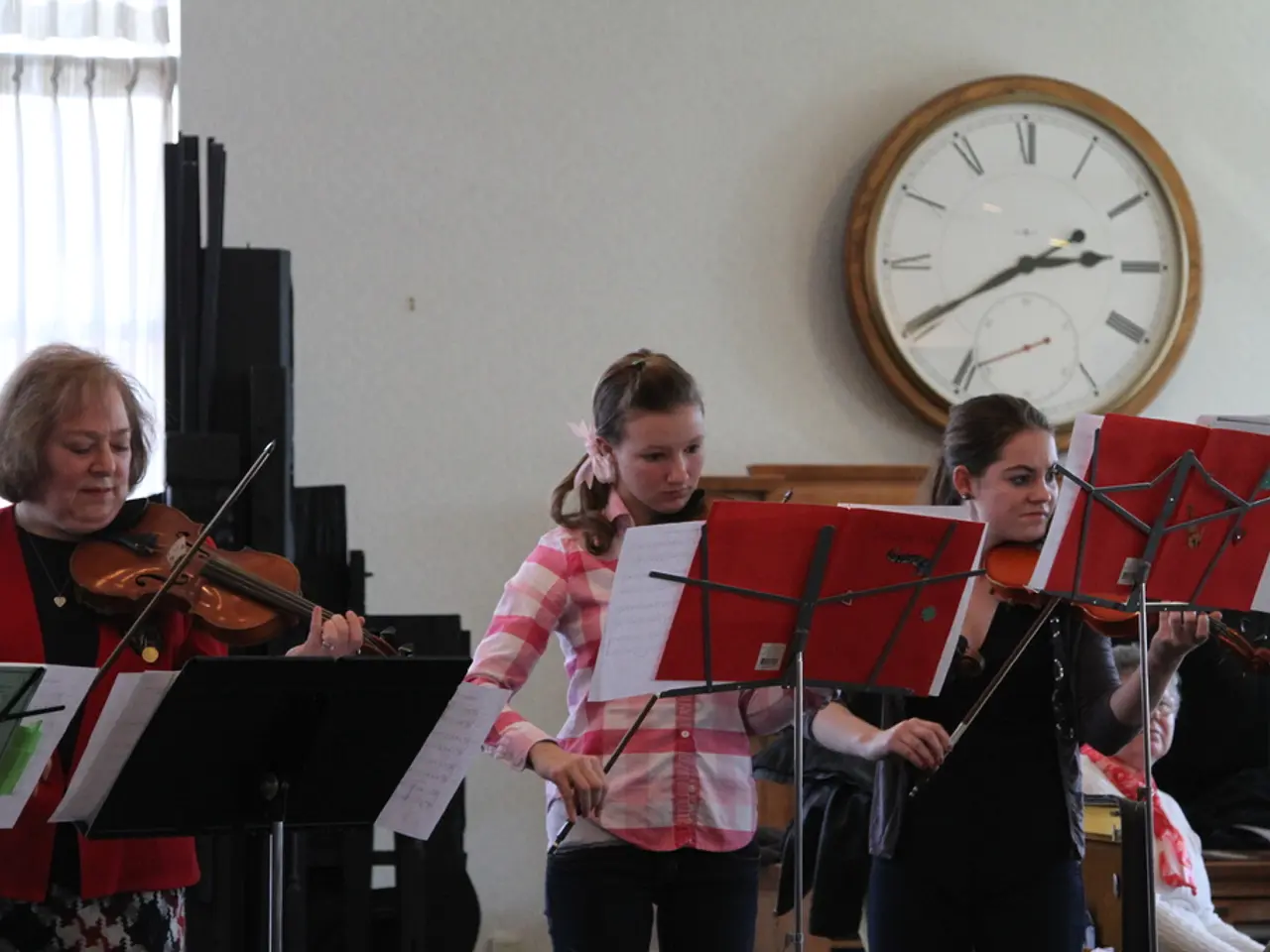Isolation and Productivity venturing with Richard Strauss
In the heart of Berlin, the Staatsoper is currently staging Richard Strauss' opera Die schweigsame Frau (The Silent Woman), a comedic masterpiece that delves into themes of marriage, deception, and gender roles, all while offering a witty exploration of human nature.
Composed in 1933–34, this opera was a collaboration between Strauss and librettist Stefan Zweig, marking their only joint operatic work. The story is based on Ben Jonson's 1609 play Epicœne, or the Silent Woman, and it serves as a stylistic return to a more charming and elegant comic opera for Strauss, following his earlier serious and romantic operas.
Historically, the composition of Die schweigsame Frau took place during a politically fraught era in Germany. The opera's premiere was initially planned for Dresden in 1935, but the rise of the Nazi regime had a significant impact on its reception and performance history. Zweig, a Jew, was forced into exile, and the opera was rarely staged in Germany until 1945.
The opera primarily belongs to the orchestra's performance, with Christian Thielemann, conductor, skillfully leading the musicians. Thielemann's expertise in conducting the orchestra makes it easier for the singers to handle their extensive roles while still highlighting the complexity of the orchestral action. His performance is celebrated by his fans in the Staatsoper audience, but no further performances are planned for the 2025/26 season.
The production, directed by Jan Philipp Gloger, is set in a modern Berlin apartment building. The main characters are portrayed by Peter Rose as the old grump Morosus, Siyabonga Maqungo as his nephew Henry, Brenda Rae as Aminta/Timidia, and Samuel Hasselhorn as the barber who stages the play. Rae's performance as Aminta/Timidia improves from a slightly sharp voice in the first act to a convincing portrayal of the tyrannical wife and compassion towards Morosus.
Projections are used to address the socially relevant issue of elderly loneliness, hinting at a housing crisis solution in the production, with the theater troupe moving in with Morosus. This modern setting adds a contemporary twist to the classic opera, making it relatable to a wider audience.
Despite Strauss serving as president of the Reichsmusikkammer during the Nazi regime, Die schweigsame Frau stands as a unique work in his operatic output—an elegant comedic opera reflecting on social themes under a tense historical backdrop. The opera's enduring appeal lies in its ability to combine sophisticated music with a witty libretto, offering a comedic exploration of human nature that resonates even today.
In the realm of science and health-and-wellness, the portrayal of elderly loneliness in Die schweigsame Frau serves as an important discussion for mental health, particularly as we consider the impacts of aging on individuals and society.
Moreover, the enduring appeal and relevance of Die schweigsame Frau in today's society demonstrate its value as a piece of health-and-wellness art, reminding us of the benefits of artistic exploration and comedy in fostering mental health and well-being.




